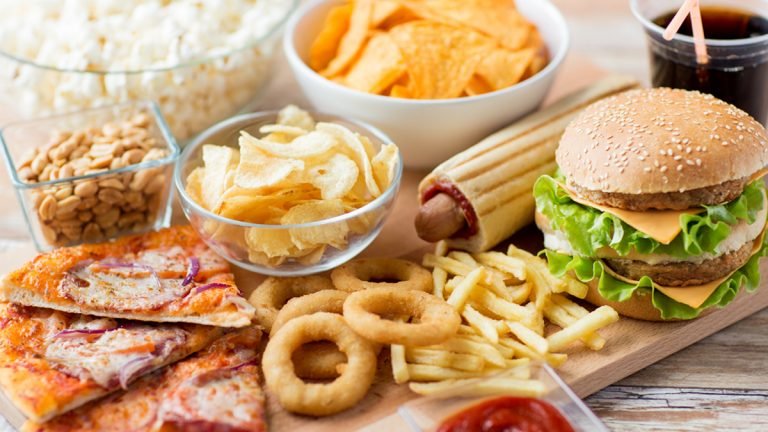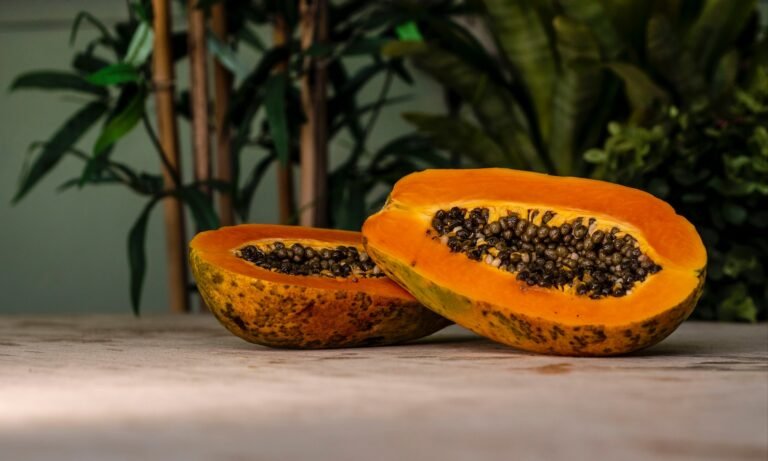The Top 10 Foods to Avoid with Diabetes
Diabetes is a complex condition that requires a multifaceted approach to management. While medication plays a crucial role, the importance of dietary choices cannot be overstated. The foods we consume can significantly impact blood sugar levels, overall health, and the risk of developing diabetes-related complications. By understanding the top 10 foods to avoid with diabetes, individuals can make informed decisions and take an active role in their well-being.
Diabetes management goes beyond just medication; a healthy diet is crucial. Certain foods can have a profound impact on blood sugar levels, leading to rapid spikes or prolonged periods of high or low blood sugar. These fluctuations can not only make managing diabetes more challenging but also increase the risk of long-term complications, such as cardiovascular disease, nerve damage, and kidney problems. Therefore, it is essential for individuals with diabetes to be mindful of their dietary choices and prioritize foods that can help maintain stable blood sugar levels and support overall health.
Dietary choices play a crucial role in diabetes management, and understanding the impact of certain foods can empower individuals to make informed decisions. By avoiding the top 10 foods that can negatively affect blood sugar control and overall health, individuals with diabetes can take a proactive approach to managing their condition and reducing the risk of complications. This comprehensive guide will explore the reasons why these foods should be limited or avoided, providing valuable insights to help individuals with diabetes achieve better health outcomes.
Table of Contents
Key Takeaways
- Dietary choices are crucial for managing diabetes effectively.
- Sugary beverages and fruit juices should be avoided due to their high sugar content.
- White bread, refined carbohydrates, and baked goods can cause spikes in blood sugar levels.
- Fried and fatty foods, as well as processed meats, can increase the risk of heart disease and inflammation.
- High-sodium foods should be limited to maintain healthy blood pressure.
Sugary Beverages: The Hidden Culprits
One of the most significant contributors to blood sugar spikes and overall health concerns for individuals with diabetes are sugary beverages. Sodas, juices, and other sweetened drinks often contain high amounts of added sugars, which can cause rapid increases in blood sugar levels. The high sugar content in these beverages can lead to a surge in insulin production, potentially exacerbating insulin resistance and increasing the risk of developing type 2 diabetes complications.
Consuming sugary beverages regularly can also contribute to weight gain, a significant risk factor for diabetes and its associated complications. The empty calories and lack of nutritional value in these drinks provide little to no benefit, while the high sugar content can promote overeating and make it challenging to maintain a healthy weight. Additionally, the frequent consumption of sugary beverages has been linked to an increased risk of developing other chronic conditions, such as heart disease and fatty liver disease.
To maintain better blood sugar control and overall health, individuals with diabetes should avoid or significantly limit their intake of sugary beverages. Instead, they can opt for water, unsweetened tea, or low-calorie, sugar-free alternatives. By making this simple dietary change, individuals can take a significant step towards better managing their diabetes and reducing the risk of related complications.
White Bread and Refined Carbohydrates: Spikes in Blood Sugar Levels
Another category of foods that can significantly impact blood sugar levels for individuals with diabetes are refined carbohydrates, such as white bread, pasta, and white rice. These types of carbohydrates are quickly absorbed by the body, leading to sudden spikes in blood sugar levels. This rapid rise in blood sugar can be challenging to manage and can contribute to the development of insulin resistance over time.
Choosing whole-grain alternatives, such as whole-wheat bread, brown rice, and whole-grain pasta, can help maintain more stable blood sugar levels. These whole-grain options are typically higher in fiber, which slows the absorption of carbohydrates and helps to prevent dramatic blood sugar fluctuations. Additionally, whole grains provide a more nutrient-dense source of carbohydrates, offering additional benefits beyond just blood sugar management.
It is important for individuals with diabetes to be mindful of their intake of refined carbohydrates and to prioritize whole-grain options whenever possible. By making this simple dietary swap, they can better manage their blood sugar levels, reduce the risk of insulin resistance, and support overall metabolic health. Incorporating a variety of whole-grain foods into the diet can be a valuable strategy for individuals with diabetes to maintain better control over their condition.
Fried and Fatty Foods: Increased Risk of Heart Disease
Fried and high-fat foods can pose significant challenges for individuals with diabetes, as they can contribute to weight gain, inflammation, and an increased risk of heart disease. Diabetes is already associated with an elevated risk of cardiovascular complications, and the consumption of fried and fatty foods can further exacerbate this risk.
Fried foods, such as french fries, fried chicken, and doughnuts, are often cooked in oils that are high in unhealthy fats, such as trans fats and saturated fats. These types of fats can lead to the buildup of plaque in the arteries, increasing the risk of heart disease, stroke, and other cardiovascular problems. Additionally, the high calorie and fat content of fried foods can contribute to weight gain, which is a significant risk factor for diabetes and its associated complications.
Limiting the consumption of fried and high-fat foods is crucial for individuals with diabetes. Instead, they should focus on incorporating healthier cooking methods, such as baking, grilling, or sautéing, and choosing lean protein sources, healthy fats, and a variety of vegetables and whole grains. By making these dietary adjustments, individuals with diabetes can reduce their risk of heart disease and other cardiovascular complications, while also supporting overall metabolic health and weight management.
Processed Meats: Potential Inflammation and Cardiovascular Concerns
| Food | Portion Size | Carbohydrates (g) | Sugar (g) | Saturated Fat (g) | Sodium (mg) |
|---|---|---|---|---|---|
| Sugar-sweetened beverages | 12 oz | 38-65 | 37-65 | 0 | 0-30 |
| Trans fats | N/A | 0 | 0 | 0.5-2 | 0-7 |
| White bread, rice, and pasta | 1 cup | 45-60 | 0-3 | 0 | 0-200 |
| French fries and potato chips | 1 oz | 15-30 | 0-1 | 1-3 | 90-180 |
| Candy and sweets | 1 oz | 15-30 | 10-20 | 0 | 0-5 |
| Baked goods | 1 serving | 15-30 | 10-20 | 1-5 | 0-200 |
| Processed meats | 2 oz | 0-2 | 0-2 | 2-4 | 200-400 |
| Full-fat dairy | 1 cup | 12-15 | 12-15 | 5-10 | 100-200 |
| Alcohol | 1 drink | 0-15 | 0-15 | 0 | 0-30 |
| Fruit-flavored yogurt | 6 oz | 15-30 | 15-30 | 0-3 | 70-120 |
Processed meats, such as bacon, sausage, and deli meats, can pose significant health risks for individuals with diabetes. These types of meats often contain preservatives, high amounts of sodium, and saturated fats, which can contribute to inflammation, cardiovascular disease, and other diabetes-related complications.
The high sodium content in processed meats can be particularly problematic for individuals with diabetes, as they are already at an increased risk of developing hypertension and related cardiovascular issues. Consuming processed meats regularly can exacerbate these health concerns and increase the likelihood of developing heart disease, stroke, and other cardiovascular problems.
Furthermore, the preservatives and additives commonly found in processed meats have been linked to an increased risk of inflammation. Chronic inflammation is a known contributor to the development and progression of various diabetes-related complications, including nerve damage, kidney disease, and cardiovascular disease.
To mitigate these risks, individuals with diabetes should aim to limit their consumption of processed meats and instead focus on incorporating lean, unprocessed protein sources into their diet. This may include grilled or baked chicken, fish, legumes, and plant-based proteins. By making this dietary adjustment, individuals with diabetes can reduce their exposure to harmful additives, sodium, and unhealthy fats, ultimately supporting better overall health and reducing the risk of diabetes-related complications.
Fruit Juices: The Deceptive Sugar Traps

While fruit juices may seem like a healthier alternative to sugary beverages, they can actually pose significant challenges for individuals with diabetes. Many fruit juices, even those labeled as “100% fruit juice,” contain high amounts of natural sugars that can cause rapid spikes in blood sugar levels.
The process of juicing fruits often removes the beneficial fiber content, leaving behind a concentrated source of sugar. This can lead to a more rapid absorption of the sugars, resulting in sudden increases in blood sugar that can be difficult to manage. Additionally, the lack of fiber in fruit juices can contribute to feelings of hunger and cravings, potentially leading to overconsumption and further disruptions in blood sugar control.
In contrast, whole fruits generally provide a better option for individuals with diabetes. Whole fruits contain fiber, which helps to slow the absorption of the natural sugars, leading to more gradual and manageable changes in blood sugar levels. Additionally, whole fruits offer a variety of other beneficial nutrients, such as vitamins, minerals, and antioxidants, that can support overall health.
To maintain better blood sugar control and overall health, individuals with diabetes should prioritize whole fruits over fruit juices. If fruit juices are consumed, it is essential to do so in moderation and to pair them with a balanced meal or snack to help mitigate the impact on blood sugar levels.
Baked Goods and Desserts: Indulging with Caution
Cakes, cookies, pies, and other baked goods can pose significant challenges for individuals with diabetes due to their high content of refined carbohydrates, sugar, and unhealthy fats. These types of desserts and baked treats can lead to rapid spikes in blood sugar levels, making it difficult to maintain stable blood sugar control.
The combination of refined carbohydrates, such as white flour, and added sugars in baked goods can create a potent cocktail that can overwhelm the body’s ability to regulate blood sugar effectively. Additionally, the high-fat content, often from butter, oil, or other sources, can contribute to weight gain and an increased risk of cardiovascular disease, which is already a concern for individuals with diabetes.
While an occasional indulgence in small portions of baked goods or desserts may be acceptable as part of a balanced diabetes-friendly diet, it is crucial for individuals with diabetes to be mindful of their consumption of these types of foods. Moderation and portion control are key, as is prioritizing healthier alternatives, such as homemade baked goods made with whole-grain flours, natural sweeteners, and healthy fats.
By being selective and intentional about their consumption of baked goods and desserts, individuals with diabetes can enjoy these treats in a way that does not significantly compromise their blood sugar control or overall health. This approach can help maintain a balanced and sustainable dietary plan that supports the management of diabetes and reduces the risk of related complications.
High-Sodium Foods: Maintaining Healthy Blood Pressure
In addition to the impact of certain foods on blood sugar levels, individuals with diabetes must also be mindful of their sodium intake. Many processed and packaged foods, such as canned soups, deli meats, and snacks, can be high in sodium, which can pose significant health risks for those with diabetes.
Diabetes is already associated with an increased risk of developing hypertension, or high blood pressure, which can further contribute to the development of cardiovascular disease, kidney problems, and other diabetes-related complications. Consuming high-sodium foods can exacerbate this risk, leading to even higher blood pressure levels and a greater strain on the cardiovascular system.
To maintain healthy blood pressure and reduce the risk of these complications, individuals with diabetes should aim to limit their intake of high-sodium foods. This may involve reading nutrition labels, choosing low-sodium or no-salt-added options, and focusing on fresh, whole foods that are naturally lower in sodium.
By making conscious choices to limit their consumption of high-sodium foods, individuals with diabetes can take an important step towards better managing their condition and reducing the risk of hypertension and related health issues. This dietary adjustment, combined with other lifestyle factors, can contribute to improved overall health and a reduced likelihood of developing diabetes-related complications.
Embracing a Diabetes-Friendly Diet for Better Health
Navigating the dietary landscape as an individual with diabetes can be a complex and challenging task, but by understanding the top 10 foods to avoid, significant progress can be made in managing the condition and reducing the risk of complications. From sugary beverages and refined carbohydrates to fried and high-sodium foods, these dietary choices can have a profound impact on blood sugar control, overall health, and the development of diabetes-related issues.
By making conscious efforts to limit or avoid these problematic foods, individuals with diabetes can take an active role in their well-being. Embracing a balanced, nutrient-dense diet focused on whole, unprocessed foods can lead to improved blood sugar management, weight control, and a reduced risk of cardiovascular disease, nerve damage, and other diabetes-related complications.
Adopting a diabetes-friendly diet is not about deprivation or restriction; it is about finding a sustainable approach that supports overall health and well-being. By incorporating a variety of nutrient-rich foods, such as lean proteins, whole grains, fruits, and vegetables, individuals with diabetes can nourish their bodies, maintain stable blood sugar levels, and reduce the burden of their condition.
Ultimately, the key to successful diabetes management lies in a multifaceted approach that includes medication, regular physical activity, and a thoughtful, diabetes-friendly dietary plan. By prioritizing the avoidance of the top 10 foods identified in this article, individuals with diabetes can take a significant step towards better managing their condition, improving their quality of life, and reducing the risk of long-term complications. With dedication and a commitment to making informed dietary choices, individuals with diabetes can thrive and lead healthier, more fulfilling lives.
FAQs
What is diabetes?
Diabetes is a chronic condition that affects how your body processes blood sugar (glucose).
What are the top 10 foods to avoid with diabetes?
The top 10 foods to avoid with diabetes are sugary drinks, white bread, french fries, candy, pastries and desserts, processed meat, high-fat dairy products, sweetened breakfast cereals, dried fruit, and fatty cuts of meat.
Why should people with diabetes avoid these foods?
People with diabetes should avoid these foods because they can cause blood sugar levels to spike, which can lead to complications such as nerve damage, kidney damage, and heart disease.
What are some alternatives to these foods?
Some alternatives to these foods include whole-grain bread, baked sweet potato fries, fresh fruit, nuts, lean cuts of meat, low-fat dairy products, and whole-grain cereals.
Can people with diabetes ever eat these foods?
People with diabetes can still eat these foods in moderation, but it is important to monitor blood sugar levels and limit intake to avoid spikes.
What other lifestyle changes can help manage diabetes?
Other lifestyle changes that can help manage diabetes include regular exercise, maintaining a healthy weight, quitting smoking, and monitoring blood sugar levels regularly.







